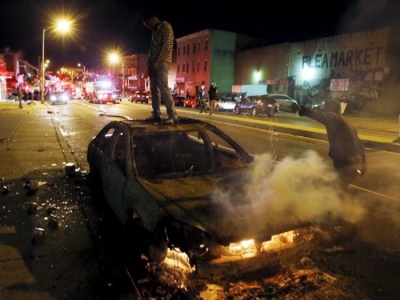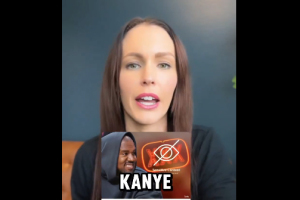Baltimore Riots & the Vocation for Order

The Baltimore riots reminded me of a passage I read last eve from Richard Norton Smith's excellent new Nelson Rockefeller biography about the 1971 Attica prison riot.
About 1000 prisoners took over the New York prison, taking 42 security guard hostages, threatening their execution. An immediate effort by security forces to retake the prison was pressed only halfheartedly, ultimately withdrawing into a siege. The inmates demanded and received on site representation by Nation of Islam Minister Louis Farrakhan, ACLU radical lawyer William Kuenstler and New York Times journalist Tom Wicker.
Predictably, Farrakhan and Kuenstler inflamed the crisis, with the latter demanding the prisoners be transferred to "non-imperialist" countries. Negotiations continued for days to no good effect, and finally Governor Rockefeller, falsely informed that hostages were being mutilated, ordered recapture of the prison. Forty three were killed, including 10 hostages, most of them mistakenly by security bullets.
Conditions in the prison were horrid but there were plans for improvement by a well -ntentioned state prisons commissioner. Yet his failing to retake the prison immediately, instead pursuing fruitless negotiation, again with good intent, had disastrous consequences. Aggression, riot and disorder, if not quickly countered, always fester and grow in confidence, making their defeat all the more problematic and likely even more violent.
Apparently the Baltimore rioters were not met from the start with decisive force, so unsurprisingly they grew. Some religious activists on Twitter are tut-tutting the violence as the understandable consequence of police misconduct. Some sound like clergy versions of Leonard Bernstein's infamous "radical chic." But rioters and looters are not typically concerned social activists raging for justice. Likelier they are hooligans exploiting opportunity. If successful, they burn, bash and steal with even greater fury.
John Wesley referred to 18th century English mobs as "beasts," with demonic and murderous personalities of their own. Such is human nature, to which we are all prone. Wesley insisted, in sync with nearly all Christian teaching from the start, that the state's primary purpose is to restrain violent evil with its own force, to uphold public order, without which there can be no social justice.
Riots rarely occur in neighborhoods of the rich. Instead, they torment the poor, destroying small businesses thereafter prone to leave, and destroy the property of those who already have little. Allowing rioters "space" may sound kind, or wise, but it's nearly always disastrous, and grossly irresponsible, amplifying the fire, and ensuring the largely lower income neighborhoods are set back even further. Meanwhile, the rich are merely discomfited in their television viewing.
Some Baltimore clergy reportedly have marched in the streets to urge calm, which is admirable. But they and others should also demand in the future that in defense of public order for all, especially the poor, the police will act decisively from the very start against mob violence. To do otherwise is a moral and spiritual failure of the state's divinely ordained purpose in our fallen world.




























